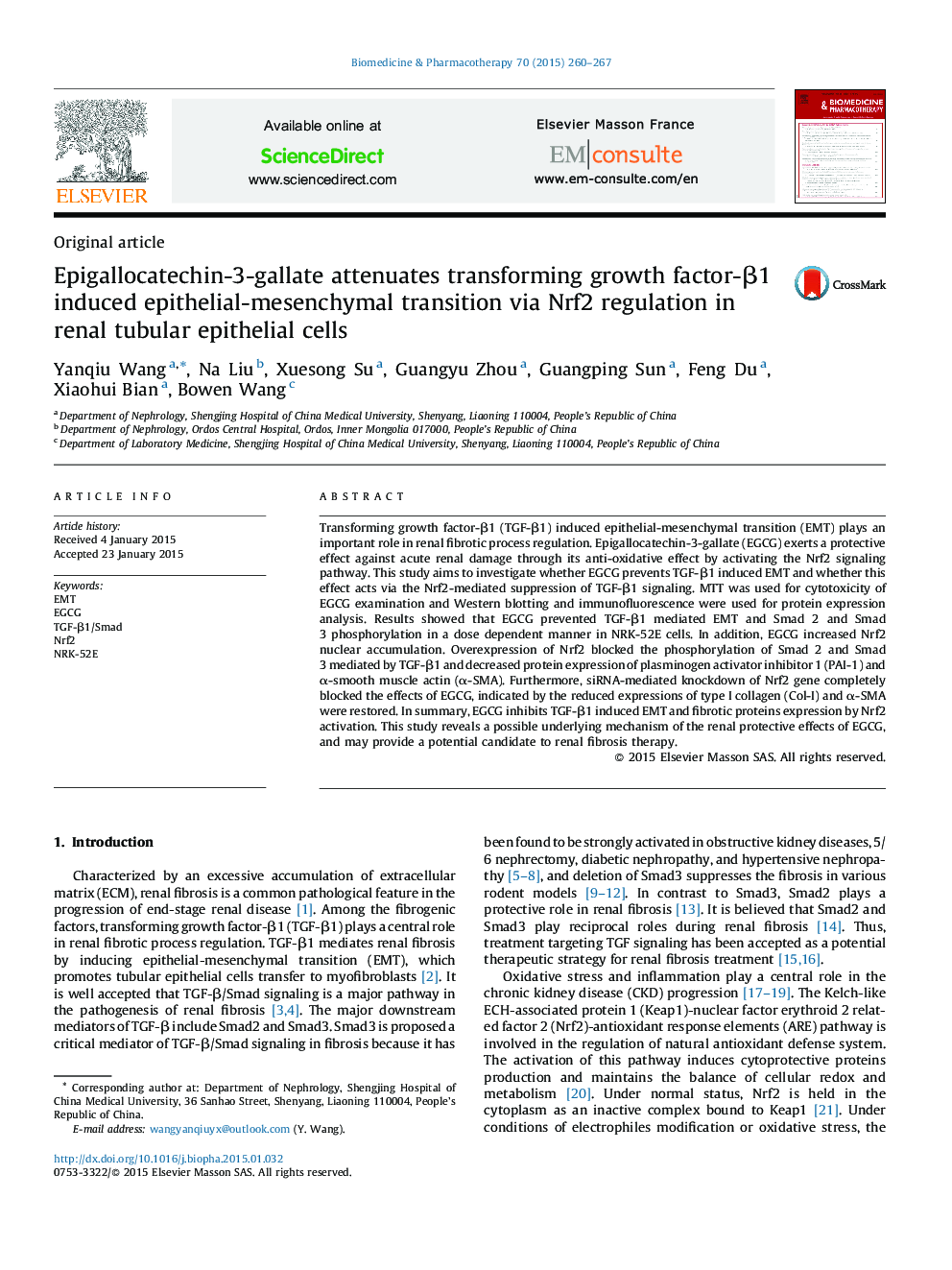| Article ID | Journal | Published Year | Pages | File Type |
|---|---|---|---|---|
| 2524013 | Biomedicine & Pharmacotherapy | 2015 | 8 Pages |
Transforming growth factor-β1 (TGF-β1) induced epithelial-mesenchymal transition (EMT) plays an important role in renal fibrotic process regulation. Epigallocatechin-3-gallate (EGCG) exerts a protective effect against acute renal damage through its anti-oxidative effect by activating the Nrf2 signaling pathway. This study aims to investigate whether EGCG prevents TGF-β1 induced EMT and whether this effect acts via the Nrf2-mediated suppression of TGF-β1 signaling. MTT was used for cytotoxicity of EGCG examination and Western blotting and immunofluorescence were used for protein expression analysis. Results showed that EGCG prevented TGF-β1 mediated EMT and Smad 2 and Smad 3 phosphorylation in a dose dependent manner in NRK-52E cells. In addition, EGCG increased Nrf2 nuclear accumulation. Overexpression of Nrf2 blocked the phosphorylation of Smad 2 and Smad 3 mediated by TGF-β1 and decreased protein expression of plasminogen activator inhibitor 1 (PAI-1) and α-smooth muscle actin (α-SMA). Furthermore, siRNA-mediated knockdown of Nrf2 gene completely blocked the effects of EGCG, indicated by the reduced expressions of type I collagen (Col-I) and α-SMA were restored. In summary, EGCG inhibits TGF-β1 induced EMT and fibrotic proteins expression by Nrf2 activation. This study reveals a possible underlying mechanism of the renal protective effects of EGCG, and may provide a potential candidate to renal fibrosis therapy.
